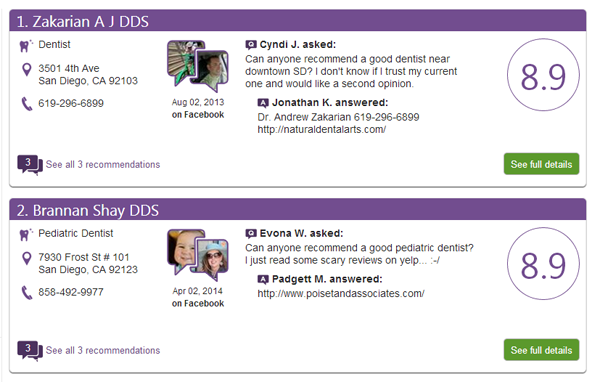New Review Site Pulls Public Facebook Recommendations

Internet users are growing increasingly skeptical of online review sites.
In fact, one in four people believe the information available on ratings sites is unfair, according to a 2013 Maritz Research survey. A new service called WhoDoYou is trying to solve that problem. It's an interesting concept that really takes no action from business owners, at least not yet.
WhoDoYou uses advanced machine learning and natural language processing to scour social networks for relevant public content (ex. "Does anybody know a good plumber in Milwaukee?"), captures the responses and distills them into searchable recommendations. Users can search by category and location, and trace every recommendation back to its original source, making it extremely difficult for businesses to 'game the system' with phony reviews.
In other words, WhoDoYou takes public conversations from Facebook, catalogs them and stores them on their website. They are reclaiming the advice that is already being shared on Facebook and putting it in a format that other people can use - whether they are Facebook friends with the original reviewers or not.
Currently, according to Founder and CEO Yoav Schwartz, WhoDoYou is working on getting the consumer side right first before jumping into business outreach. After all, there's a lot of new technology and machine learning involved in pulling data from Facebook and turning the data into business profiles.
What the company plans to do in the next 3-6 months is focus more on the business sides of things. Today, business owners can sign up for a free profile with the most basic information. There is also a premium profile option, which adds more information like logos, hours of operation, etc. If they don't do either, but have been recommended by someone (anyone) on Facebook, they will appear on the site. The good news is that if someone is not a great provider, they are more likely to not show up, because it's about "who do you use" not who do you not like.
What's interesting about the business plan is that the conversations dictate its growth. For example, if people on Facebook are always recommending doctors, but not plumbers, than the doctors' category will grow quicker. The same could be said of the different cities where recommendations are happening. If people in San Diego are always recommending dentists, but more doctor recommendations are coming out of Chicago, then there will be some discrepancy.









